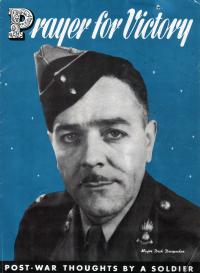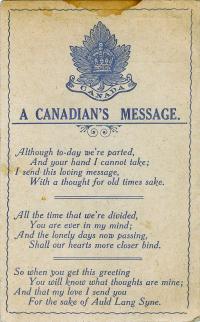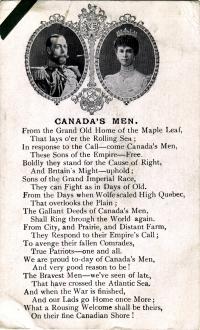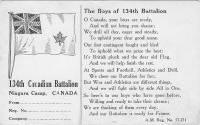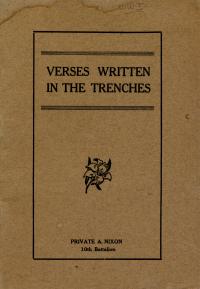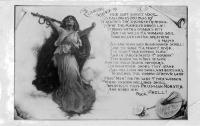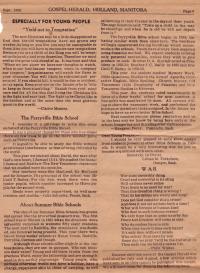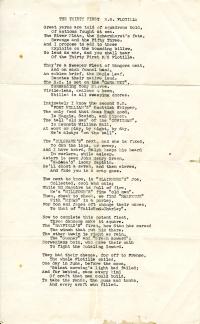Poetry
A soldier-poet looks towards peace
One of the most popular poems of the Second World War, "Prayer for Victory" was read to huge crowds by actors Greer Garson and Raymond Massey, and broadcast to millions of listeners on national radio networks. Diespecker asked that any profits generated by sales of his work go to the Canadian Red Cross Society.
A Canadian's message home
A sentimental verse from early in the First World War, inspired by Robert Burns' famous poem "Auld Lang Syne."
In praise of Canadian manhood
A Canadian soldier sent this postcard, with its verse tribute to soldierly masculinity, home to his mother in 1916.
The Boys of the 134th Battalion
This postcard was one of a series aimed at the families of Canadian soldiers during the First World War. The 134th Battalion was affiliated with Toronto's 48th Highlanders.
Soldier poetry
This little booklet was sold by ex-soldiers to raise money - it can be found in various versions, each carrying a different cover and "author."
The Clarion - Dominion Day 1916
This poem, printed in Prince Rupert, British Columbia, is typical of the highly emotional verse that was so common during the First World War.
Philo Woitas, “War”
In September 1939, a church magazine in Holland, Manitoba, printed this poem about the coming of war.
Great yarns are told of squadrons bold'
In the great tradition of stirring naval poetry, Lieutenant-Commander Hugh Campbell wrote this tribute to the men and ships of the 31st Canadian Minesweeping Flotilla while serving on HMCS Fort William. The 31st operated off Omaha and Utah beaches during the Normandy landings on 6 June 1944.

